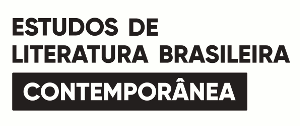abstract
The creative work of Haroldo de Campos goes beyond concretism, if it is considered from the relationship with the canon, suggesting the existence of a link between avant-garde utopia and a more broad one, focused on the dialogue and reinvention of tradition, which we can call a Faustian utopia; and which can be associated to the post-utopia, presented by the poet in the essay “Poesia e modernidade, da morte do verso à constelação O poema pós-utópico.” Motivated by a desire to review the vanguard’s hope-principle, Walter Benjamin's readings and also inspired by Octavio Paz’s “Children of the mire,” Haroldo de Campos argues, as he had in previous texts, that in a post-utopian context it is crucial that poetry contemplate the present time, criticizing the mere idea of the future. In this article, we assume a position contrary to that of critics that have focalized Campos’ utopia. Instead we put forth the hypothesis that it may be more productive to explain the utopia and post-utopia in his work in dialectical terms, which integrate both principles. According to this perspective, the past may be considered in a Benjaminian sense, as an interesting mode of interpretation. It also proposes that post-utopia is not addressed from the point of view of a poetry of crisis, but rather as a response and an articulation of the poet's position regarding crisis, and is, as such, markedly critical and inventive.
Keywords:
post-utopia; tradition; vanguard; contemporary poetry; Haroldo de Campos

